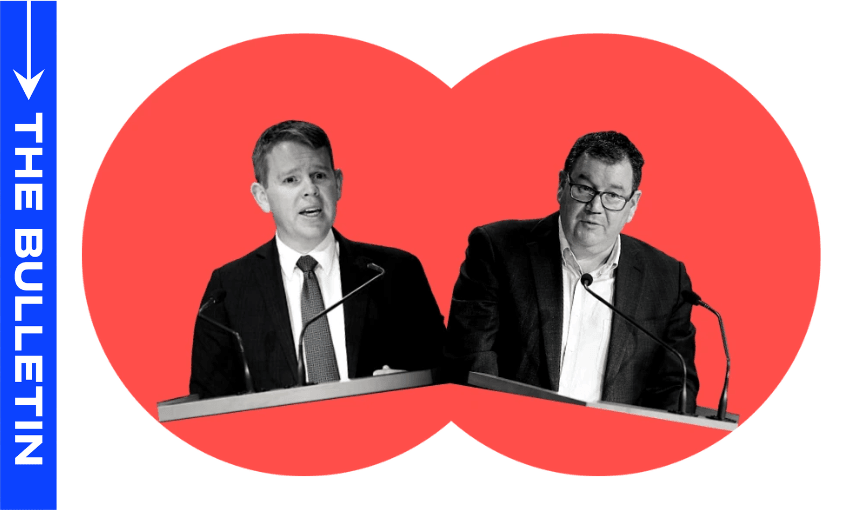The prime minister says that we’ve underinvested in infrastructure and resilience for too long and ‘that has to change’. A resounding chorus joins him but what does it mean for this year’s Budget, asks Anna Rawhiti-Connell in this excerpt from The Bulletin, The Spinoff’s morning news round-up. To receive The Bulletin in full each weekday, sign up here.
“Some tough calls will need to be made”
In a briefing last night, prime minister Chris Hipkins said “We will build back better, but we will also need to build back more resilient than before” and “if we’re going to build back quickly, some tough calls will need to be made and I’m absolutely committed to doing it.” Hipkins was emphatic about the country’s underinvestment in infrastructure and resilience. Opposition leader Christopher Luxon has been equally firm over the last few days on the need to invest in infrastructure and climate change adaptation.
Finance minister estimated costs of recovery to be similar to Canterbury earthquakes
In an interview on Q&A yesterday finance minister Grant Robertson said that the cost of recovery will be in the billions. He expects the total cost to be similar to the Canterbury earthquakes “in the $13b region”, although some of that will be absorbed by insurance and the existing budgets of government agencies. Hipkins said last night that there were going to be some big calls on this year’s Budget and that the government will have to refocus and prioritise. Suffice to say, accommodating flood recovery and infrastructure investment will involve doing a bit more than ditching the TVNZ/RNZ merger which had an upfront cost of around $370m.
“Do the goddamn thing properly”
Hipkins will find many advocates for his clarion call on infrastructure investment in this feature from Stuff’s Kevin Norquay yesterday. He will also find that most are urging that the recovery and climate change adaptation work be done properly. “Cheapest is not always best. Sometimes it’s going to be a case of doing the goddamn thing properly,” said economist Cameron Bagrie. Bagrie also said people thinking you can fund the work and do tax cuts as well, “are whistling dixie.” Robertson told an audience of business leaders this week that the country should not expect, as Simon Bridges put it, many “lollies” in this year’s Budget.
“We save for a rainy day, we happen to be having a lot of them at the moment”
All of this makes for some tricky days and weeks ahead for the finance minister. Hipkins said that reprioritising and refocusing after the cyclone mean the government will be making “some reasonably significant late budget process decisions”. The December Budget Policy Statement which lays out the government’s priorities for the Budget, was firmly focused on the cost of living. Net debt was forecast to peak at 21.4% of GDP. Liam Dann’s column yesterday (paywalled) is worth a read for some perspective on the position we find ourselves in. He cites BNZ’s Stephen Toplis who says the government has the capacity to find $20b for rebuilding simply by shifting the projected peak for our debt track from 21.4% to 27%. As Robertson said on Q&A, “We save for a rainy day, we happen to be having a lot of them at the moment and we will respond.”


